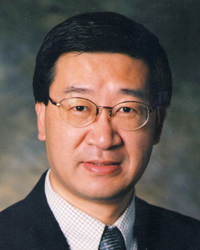June 7, 2017

UW mechanical engineering professor Dayong Gao is one of more than 40 world leaders in science and medicine who are calling for a modern-day "Apollo Program" to advance organ and tissue preservation research.
In an article published in Nature Biotechnology, the authors identify preservation capabilities as one of the key challenges facing biomedicine today — affecting millions of people worldwide by constraining the ability to treat patients for heart disease, cancer, diabetes, liver failure and other leading causes of death.
Authors stress that implications for global health, the success of scientific research and drug discovery, healthcare expenditures, and national defense are profound.
In the U.S. alone, for every one patient on the heart transplant waitlist who does not receive an organ in time, ten hearts from organ donors go unused, despite work being done by organ procurement organizations. Short heart preservation windows (only 3-5 hours) are a major driver of this phenomenon. Researchers say that advancements in technologies such as cryopreservation and transplantation could assist in lengthening such windows.
"Organ cryopreservation is the next frontier of the cryobiology, biobanking and organ transplantation fields," said Gao, who has collaborated with hospitals and corporations to support and promote biobanking in medical practice and cell-tissue transplantation since 1991.
An innovative leader in cryobiology and cryo-biomedical engineering, Gao currently serves at the president of the international Society for Cryobiology. His work has applications in cryopreservation, regenerative medicine, gene and cell therapy, organ transplantation, and the development of bio-instruments and artificial organs.
"We're starting to see the cryopreservation technology, historically used to store cells, embryos and small tissues, successfully scaled up to ever larger systems such as animal limbs, ovaries, and even vital organs," he said. "Who knows what the limits are for this technology? It seems we haven't come close to approaching them yet."
Along with Gao, additional authors include Nobel Prize and Breakthrough Prize winners, pioneers of tissue engineering, xenotransplantation, and other fields, and scientists and heads of transplantation from institutions such as Harvard, MIT, Stanford and Johns Hopkins.
Many of these leaders will gather at the upcoming global Organ Banking Summit at Harvard Medical School.
"This is the kickoff for a modern day 'Apollo Program in Organ Banking,'" said co-lead author and chairman of the Organ Preservation Alliance, Dr. Sebastian Giwa. "Like going to moon was audacious, but something we knew we could accomplish, so is solving organ cryobanking."
For more information, contact Gao at dayong@uw.edu or Giwa at sebastian.giwa@post.harvard.edu.
This release was adapted from a Nature Biotechnology release.